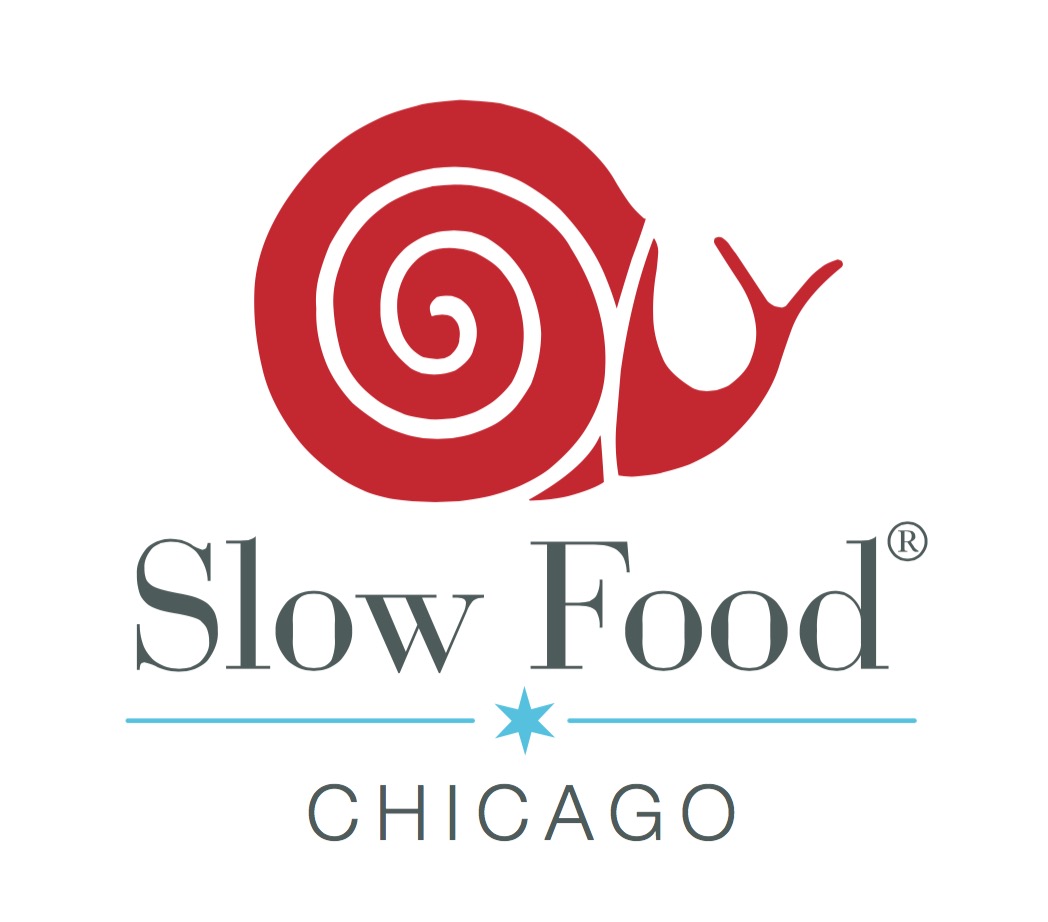Slow Food Chicago Member July Discount Partner Profile : The Chopping Block
/Slow Food Chicago Members have just a couple more days to wait before they can take advantage of the July Year of Slow Food member promotion for discounted pricing on any July or August cooking classes (booked in the month of July) at The Chopping Block. We had the pleasure of chatting with their Marketing Manager Andrea Miller to discuss how their classes help patrons get comfortable and gain confidence cooking for themselves at home. This, in turn, lends a little love to our Slow Food grassroots movement of promoting and advocating for food that is good for you, cleanly produced, and fair to all those involved in it's production. Here's Andrea!
What was the idea behind The Chopping Block? How did you start?
The Chopping Block opened at the original location in 1997 as an antique cookware shop and cooking school in a small cottage in Lincoln Park. Shortly after opening, Owner and Chef Shelley Young found that many of her customers needed assistance in selecting pots and pans and other kitchen equipment. The retail portion of the store began to grow as Young and her team of instructors started choosing the best equipment and ingredients for home cooks and carrying those items in the store. A mentoring style of relationship flourished between The Chopping Block and its students, who quickly saw the storehouse of knowledge available in the staff. The partnership worked, and in 2003, The Chopping Block opened its second location in Lincoln Square. The Lincoln Park location was moved to an 8,000 square foot space in the Merchandise Mart in Summer 2005, which greatly expanded the offerings of the school, including the ability to offer customized private cooking events for groups as large as 300 people.
What would you be doing right now on a typical workday?
We are always preparing for our next cooking class or private event. As one of the busiest recreational cooking schools in the country hosting an average of 300 classes and events each month, there's always something going on in our seven kitchens at our two Chicago locations.
What's the best part about your job? The hardest part?
The best part about working at The Chopping Block is being part of a team whose mission is to get the country to cook. We do that not only by offering cooking classes and private events, but by building a community around cooking through our website, social media outlets and instructional videos. Our staff sets up apart from other schools because they truly care about cooking. Shelley has a motto she lives by everyday. Her goal is to create a company environment that her employees' view as "the best job they have ever had."
The sluggish economy presents an interesting situation for The Chopping Block. While Americans are still tightening their belt on eating out, they are cooking more at home. So, while people may be hesitant to spend the money on a cooking class, they greatly value the skills learned at the class. We provide a service that helps people make better decisions about food.
What do you think is the biggest obstacle for Chicago's food systems to overcome?
Getting quality food and education on how to prepare it for more people in need.
How does The Chopping Block's work relate to the Slow Food objectives (good, clean, fair food)?
It's no secret that eating at home is less expensive, healthier and brings families and friends together at the table. It's focusing on those relationships that are created over food that we try to lead by example. We are constantly evolving to fit our customers' needs. With all of the different classes and events we do each month, it can be a challenge to engage each person that walks through our doors. But our staff excels at this! Whether a customer is attending one of our intensive Culinary Boot Camps or out for a fun date night, our goal is to listen to what they hope to get out of their experience and meet those expectations.
What surprising food item or cooking method do you think will trend in 2016?
Vegetables are stealing the show this year, and we've seen that by the popularity of our Clean Eating classes as well as the number of people who downloaded our free Clean Eating: Getting Started Guide.
What's your favorite food related social media account to follow?
It's so hard to choose just one! We love Food52, The Kitchn, Tasting Table and many more.
Anything else you'd like to share?
We also carry food-friendly wines and craft spirits at both locations, and we recently opened a bar at the Merchandise Mart. Stop by for Happy Hour on Tuesdays 4pm-6pm and enjoy select glasses of wines for $7!

























